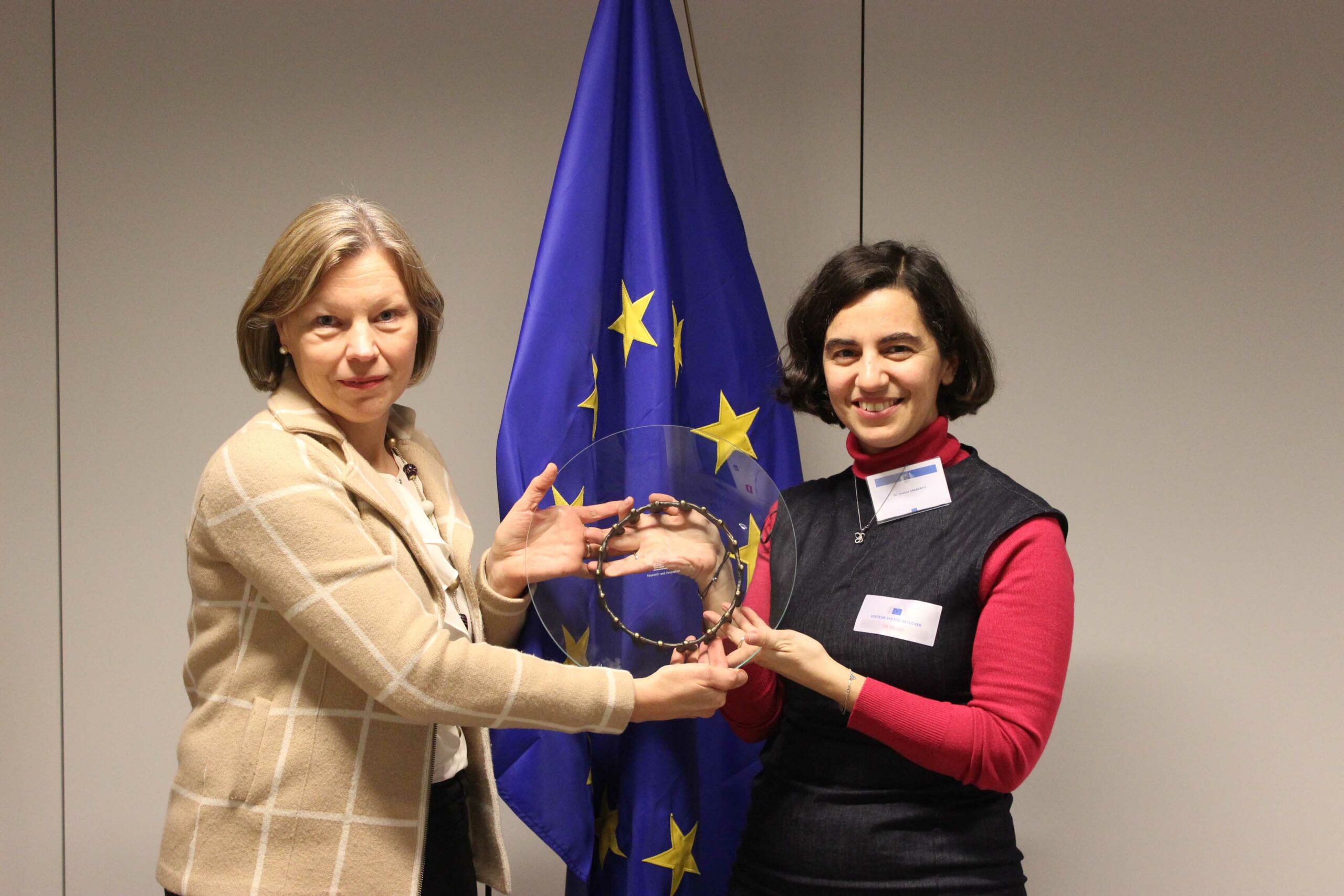Portuguese woman wins European Award for Innovative Women

What if the Internet were in moving objects? This was the basic idea behind the creation of Veniam, the tech startup that transforms vehicles such as taxis and buses into wireless access points, deploying city-wide mobile networks at reduced costs. These vehicle hotspots can function as sensors, interacting with traffic management systems and creating a network for transmitting information between hotspots on the way to their final destination. The information can be used to improve traffic management and thus help drivers. This Portuguese-designed technology is revolutionizing transportation models and mobility in the cities of the future and aims to be a forerunner of the concept of the "Internet of moving things."
This was the idea that put Susana Sargento in first place on the podium of the European competition Innovative Women 2016, out of a total of 64 entries and 9 finalists.
Created in 2011 by the European Commission, this award publicly recognizes the scientific work of women who have successfully created business models based on their areas of research. It aims to encourage other women to pursue careers in science and bring their cutting-edge ideas to market.
Susana Sargentois a researcher in communications networks and has 15 years of extensive experience in leading national and international projects. She is a member of the Department of Electronics, Telecommunications, and Informatics (DETI) at the University of Aveiro (UA), where, in collaboration with the University of Porto (UP) and with the support of UPTEC – UP Science and Technology Park and the Carnegie Mellon PortugalProgram – FCT, she was jointly responsible for the development and launch of the Veniam project in 2012.
The €100,000 prize was presented on March 10 by European Commissioner for Research, Science, and Innovation Carlos Moedas in Brussels at an event held to mark International Women's Day.
At the ceremony, the Portuguese representative emphasized that "This project also symbolizes the enormous potential that exists in Portugal in the area of the digital economy and new technologies"and that "Europe must give more support to its innovators: people who combine scientific excellence and business acumen; people who transform their research into job opportunities and who turn their ideas into benefits for our society and our economy."
The second and third prizes, worth €50,000 and €30,000 respectively, were awarded to researchers from Finland and Ireland.